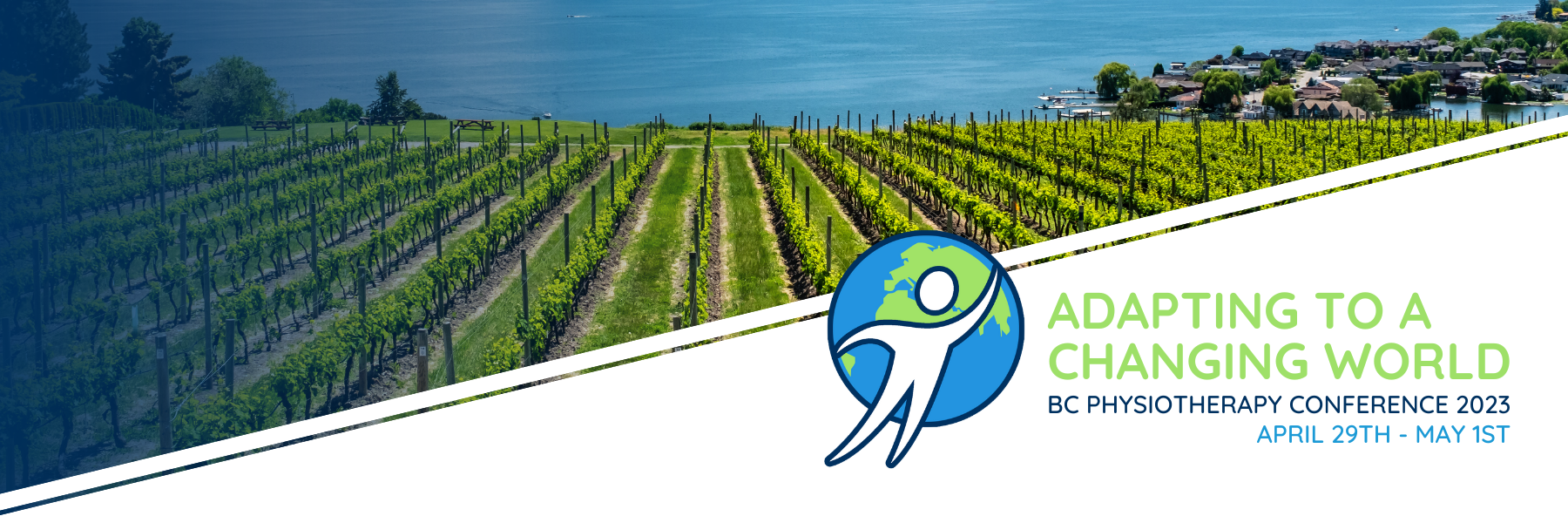
Speakers and Presenters at the BC Physiotherapy Conference 2023
Keynote Speakers
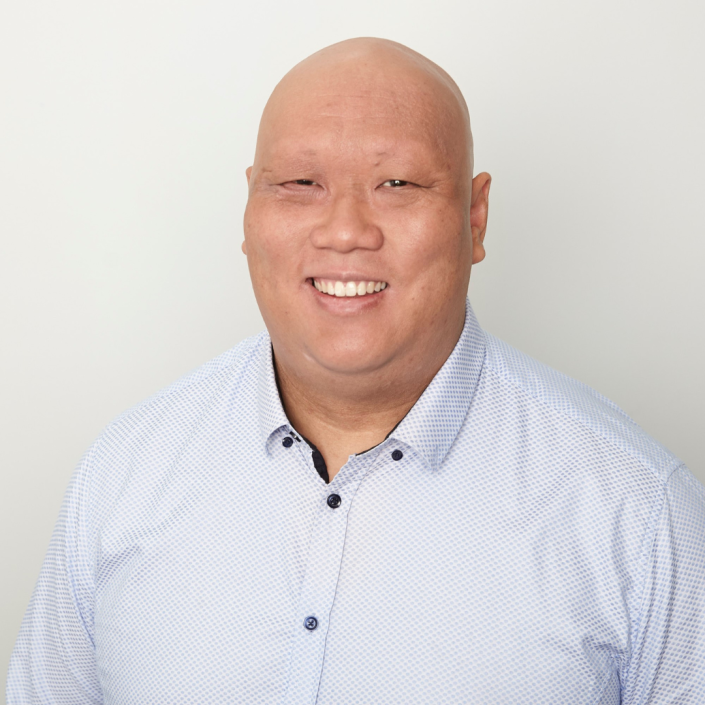
Antony Lo: Principles, Not Protocols - How to Adapt in a Changing World
Session Description:
Have you ever felt that what you learned at university is not what you are doing today? Or have you ever felt that it is so hard to keep up with the ever-expanding volume of research?
What about all that time learning about different protocols for different conditions and injuries only to have them change on you - have you ever wondered how you will stay up-to-date?
I have been there myself and having spoken to tens of thousands of health and fitness professionals, I can assure you that you are not alone!
I have found that working by *PRINCIPLES* and *NOT PROTOCOLS* was the only way I could cope with it all.
During this keynote address, I will take you through an evidence-based journey on how I boiled down these principles to describe what we do as physiotherapists - it may seem simple but the concepts run very DEEP.
By the end of the talk, you will learn a simple system of how to help someone who has booked in to see you for a condition you don't know much about and still have them raving about how great you are.
You will feel the weight of pressure lifted off your shoulders when you implement this after the conference - no more imposter syndrome!
You don't have to "fake it until you make it" - how do you EVER learn EVERYTHING there is to know? You will feel confident to help the most debilitated to the most elite athletes and everyone in between by prioritizing principles over protocols! In this ever-changing world, wouldn't it be nice to still keep doing what you know helps people AND be evidence-based as well?
If that is what you would like, then you have to come hear this talk!
Time:
9:30 am - 10:30 am
Location:
Waterfront Ballroom - Manteo at Eldorado Resort
Bio:
Antony Lo is a physiotherapist from Australia and runs The Physio Detective service and My PT Education. He earned his degree from the University of Sydney and has been in practice since 1997 (old enough to see old things come back as new things!). He completed his post-graduate Master in Manual Therapy (Musculoskeletal Physiotherapy) from the University of Western Australia and commenced his Specialization training in Musculoskeletal Physiotherapy. He has been working at the junction of Musculoskeletal, Sports Rehab and Performance, and Women’s Health for his whole career. He has experience participating and coaching a range of sports and has been a consultant for a number of different types of elite sports athletes of all ages.
Antony’s passion is working in a way that combines his experience in coaching, education, and being a Physiotherapist, combining the knowledge from the fields of Physiotherapy, Strength and Conditioning, Business, Psychology, and the Arts and Sciences. He has developed a model of treatment that utilizes the best from Sports Science, Musculoskeletal/ Sports Physiotherapy, Pain Science, and Women’s Health research to provide a practical, realistic holistic model of care balancing the biopsychosocial model of healthcare with the best of historical assessment and management approaches. He is privileged to teach health and fitness professionals around the world in person and online in addition to his clinical work. Antony has a wife and 3 beautiful children in the best city in the world – Sydney, Australia!
Attend Antony's Keynote in Kelowna
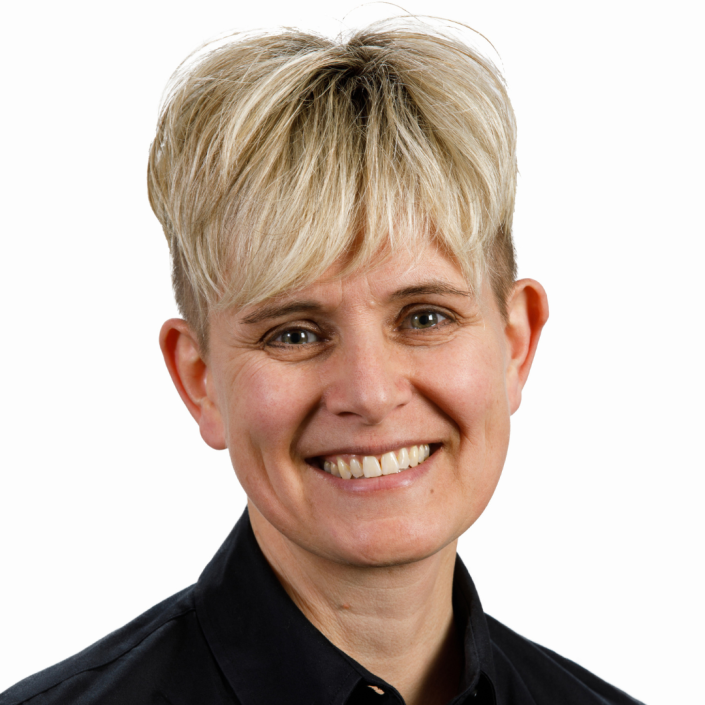
Jackie Whittaker: Focusing on the Long-game: Optimizing Knee Health After a Traumatic Injury
Session Description:
Knee injuries are common, life-altering, and a potent risk factor for osteoarthritis. Despite this, prevention of post-traumatic knee osteoarthritis is rarely addressed after a knee injury. This inaction has led to an unmet need commonly expressed by people with knee OA - ‘I had no idea my knee injury was going to impact me for the rest of my life, I wish I had known what I could have done different’.
This presentation will cover what is known about who is at greatest risk for post-traumatic knee osteoarthritis and why, and what steps can be taken to reduce this risk. This information can be used to guide rehabilitation of people with traumatic knee injuries keeping osteoarthritis prevention front of mind so that fewer people have to live with its devastating effects.
Time:
2:45 pm - 3:45 pm
Location:
Waterfront Ballroom - Manteo at Eldorado Resort
Bio:
Dr. Jackie Whittaker is an Associate Professor in the Department of Physical Therapy, at the University of British Columbia, and Research Scientist at Arthritis Research Canada in Vancouver, Canada. She holds a Michael Smith Foundation for Health Research Scholar Award and is recognized by the Canadian Physiotherapy Association as a clinical specialist in musculoskeletal rehabilitation.
Her research takes a lifespan approach to preventing osteoarthritis, with a particular emphasis on the post-traumatic knee osteoarthritis. This includes reducing the burden of sport-related knee injuries by improving our understanding of the long-term consequences of knee injuries, and developing and evaluating exercise-based interventions to promote knee health. Central to her research is an integrated knowledge translation approach, involving patients, health professionals and other stakeholders throughout the research-to-practice continuum. Recently Jackie led an international consensus exercise called OPTIKNEE which produced seven meta-analyses and consensus recommendations related to preventing osteoarthritis after traumatic knee injury. Jackie’s research is guided by 21 years of clinical practice and has resulted in over 90 peer-reviewed scientific publications.
Breakout Session Presenters
Kim Hall: Digital Leadership Promoting Inclusion and Accountability Remotely
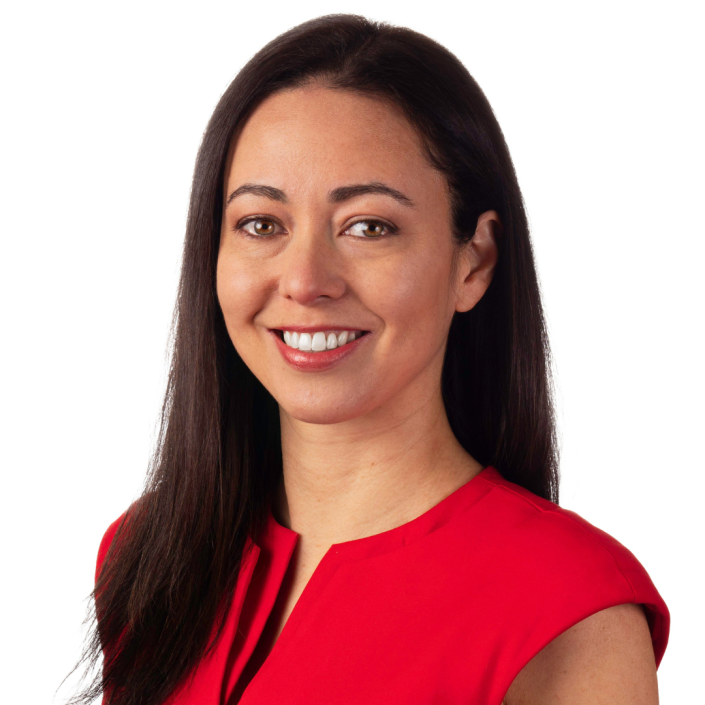
Session Description:
Objective: To learn technology-based strategies to promote organizational culture and hold therapists and support staff accountable when working remotely. A case study will be used to demonstrate effective strategies for managers or leaders to use with remote team members.
Audience: This presentation may be of particular interest to leaders and managers that work in rural or community settings in both public and private sectors.
Relevance: The pandemic has pushed more people to take advantage of computers, the internet, and new modes of communication. Technology can be used to advance healthcare operations and promote efficiency as well as potentially improve the accessibility of physiotherapy services.
Time:
TBC
Bio:

After establishing her career in the public health care system and gaining extensive experience in acute care, orthopaedics, and stroke recovery, Kim recognized the gap in the provision of in-home, private rehabilitation services.
Since starting Physio2U in 2012, Kim has developed her business acumen, leadership and entrepreneurial skills. She now leads an outstanding team of Physiotherapists and kinesiologists that aim to Empower Lives. She also provides health-related consultation work for other corporations.
In 2016, she was winner of Western Canada for the Canadian Women Entrepreneur Awards and in 2017 she was recognized as a YWCA Women of Distinction for Entrepreneurship. Kim also contributes to her industry as a member of the Board of Directors for the College of Physical Therapists of BC and as a mentor for internationally educated physiotherapists through the University of British Columbia.
Kim is an active member of the Physiotherapy Association of BC, Canadian Physiotherapy Association, Arthritis Health Professions Association and the Arthritis Continuing Education Network.
William Bateman: The Physiotherapist's Role in Mental Health
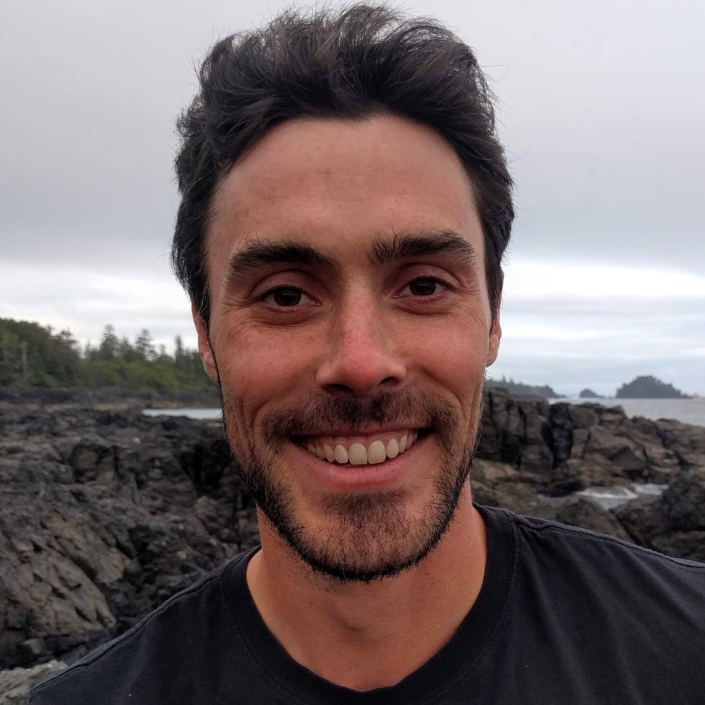
Session Description:
This session is geared towards any clinician interested in exploring the role of mental health modalities in helping clients meet their physical rehab goals. The presentation will begin by exploring typical mental health conditions (e.g. depression, anxiety, PTSD) and their impact on a client's recovery potential. It will then help clinicians identify mental health concerns in practice and, through the lens of neuroscience, learn how these concerns can tangibly impact a client's recovery. This will be followed by discussing the PT's scope in mental health and finish with an introduction to modalities PTs might consider using in practice.
Time:
TBC
Bio:

William Bateman assisted in designing and implementing Steps Services, an interdisciplinary primary care team of allied health clinicians serving vulnerable and marginalized clients with persistent pain, mental health and substance use concerns in Vancouver's Downtown Eastside. He is currently the team's co-lead, a UBC Clinical Educator and maintains an active caseload through Steps. His experience on this team has highlighted the complex interplay between mental and physical health, and allowed him to explore the role PTs play in supporting clients' mental health concerns. William has also served as a mentor with the CPA's Pain Science Mentorship Program.
Natasha Wilch: Bridging the Gap - How Physiotherapists Can Create Continuity of Care in Concussion

Session Description:
Concussion is a growing topic of interest today with greater awareness arising on the impacts of this injury. Even in that on the most recent studies 1 in 2 Canadians are still unaware of how to treat/manage concussion. Recent research has also demonstrated that up to 56% of individuals whom experience a concussion have still not returned to their functional baseline six months after their injury.
Physiotherapists' scope of practice allows us to treat the multiple phenotypes of concussion as well as the skills to identify the need for specialized referral sooner.
By the end of this presentation, therapists will be:
- Able to explain the definition of concussion and be introduced the neurometabolic process that arises
- Understand the seven different phenotypes of concussion and their relevance to treatment
- Be introduced to an acute screening and assessment to best identity a clients concussion phenotype
- Able to identify when referral to colleague or specialist is required
Time:
TBC
Bio:

Natasha Wilch has been a Registered Physical Therapist since 2011. She attended the University of British Columbia where she earned a Bachelors in Health Science & Kinesiology and then her Masters in Physical Therapy.
Today, Natasha's passion is evolving the conversation and culture of concussion around the world. She does that through her clinic, Symphony Brain Performance, her online mentorship program for clinicians, Concussion Nerds, her monthly digital publication Concussion Currents, and through speaking engagements. She believes powerfully that change will come from the front lines - the clinicians and clients. But for clinicians to do their best work they also need to take care of themselves. Natasha supports the WHOLE PERSON. When she's not diving into more learning for herself (she's forever a student) you'll find her mentoring clinicians, working with clients, or spending time with her family.
Jean-Francois Esculier and Bea Francisco: Understanding the Science Tips and Tricks for the Busy Clinician
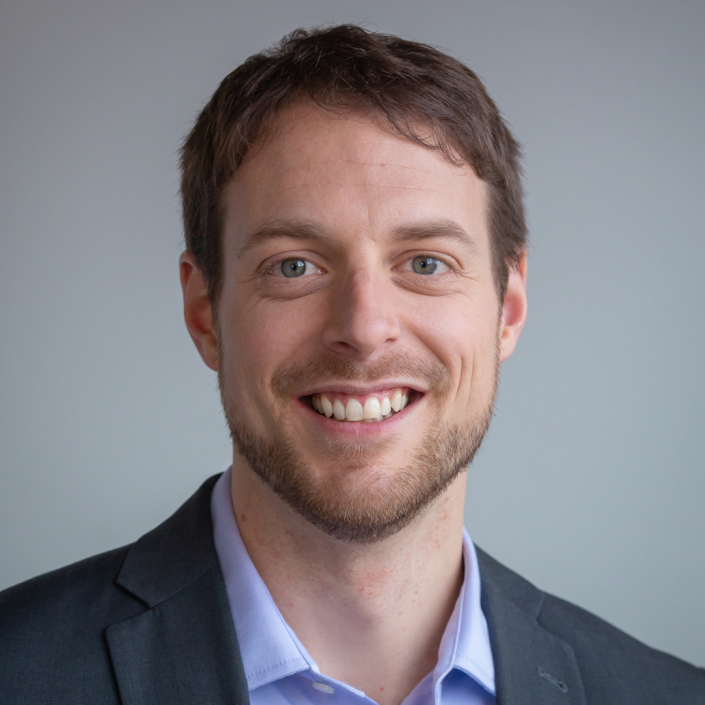
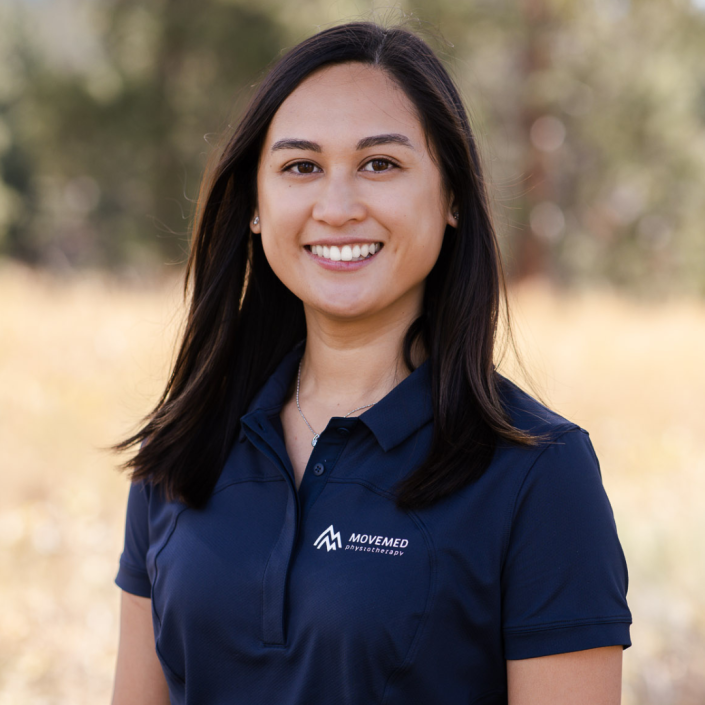
Session Description:
Do you have a hard time keeping up with the latest research? And when you're finally able to read a research article, are you struggling about whether you should really use its results to guide your practice? In this presentation, two clinician-researchers will provide simple tips and tricks to (1) find articles; (2) decide if a journal can be trusted; (3) determine if results are clinically significant; (4) understand the implications of different kinds of studies; (5) avoid traps; and more! Join us for this session, so you can save time and become more efficient in staying up-to-date as a physiotherapist.
Time:
TBC
Bios:

Jean-Francois Esculier graduated in Physiotherapy from the University of Ottawa in 2009. He completed a Masters of research and a PhD at Université Laval on the topic of patellofemoral pain in runners (rehabilitation approaches, running biomechanics and footwear). He also did a 3-year postdoctoral fellowship at the University of British Columbia, where he conducted studies related to running and knee osteoarthritis. He is still an active researcher in those fields.
JF is a passionate clinician-researcher-educator. He acts as a Speaker at The Running Clinic since 2011, and also leads the Research & Development division which conducts research on running injuries. He’s a Clinical assistant professor at the Faculty of Medicine of the University of British Columbia, where he teaches to physiotherapy and medical students. JF practices as a clinician, working mostly with runners and triathletes through his clinic, MoveMed Physiotherapy, in beautiful Kelowna, British Columbia, Canada.

Bea Francisco completed her undergraduate degree in Kinesiology before obtaining a research-based Master’s in Rehabilitation Sciences and her Master’s of Physical Therapy at UBC. She practices at her clinic, MoveMed Physiotherapy. She is particularly interested in women’s health and has taken extra training in pelvic health, assessing and treating runners, and treating the female athlete. Bea is also involved in knowledge translation with The Running Clinic, a role that involves interpreting and summarizing the latest research. She is also a Clinical Instructor in the Faculty of Medicine at UBC, where she teaches students in the Medicine and Physical therapy programs.
Jessica Adaszynski and Jodie Pulsifer: Achy But Not Breaky: A Modern Look At Pregnancy Related Pelvic Girdle Pain
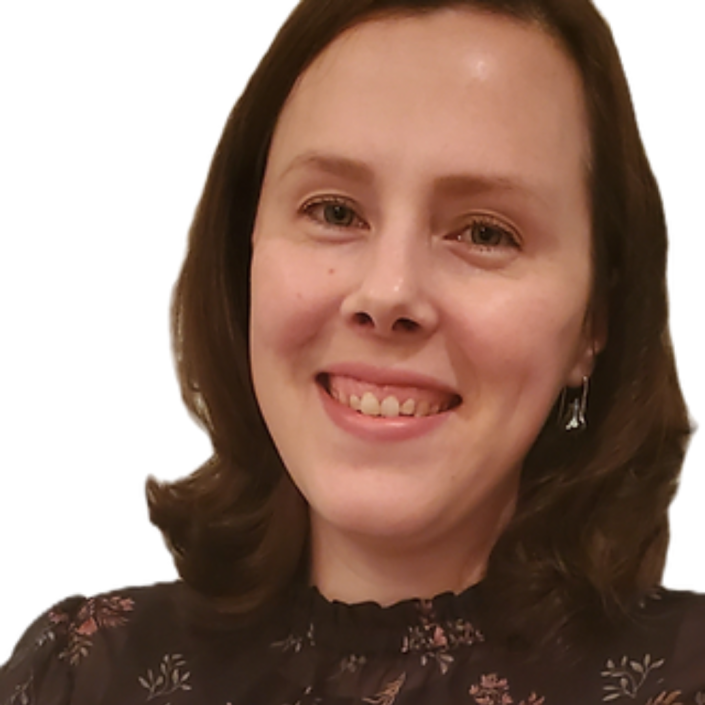
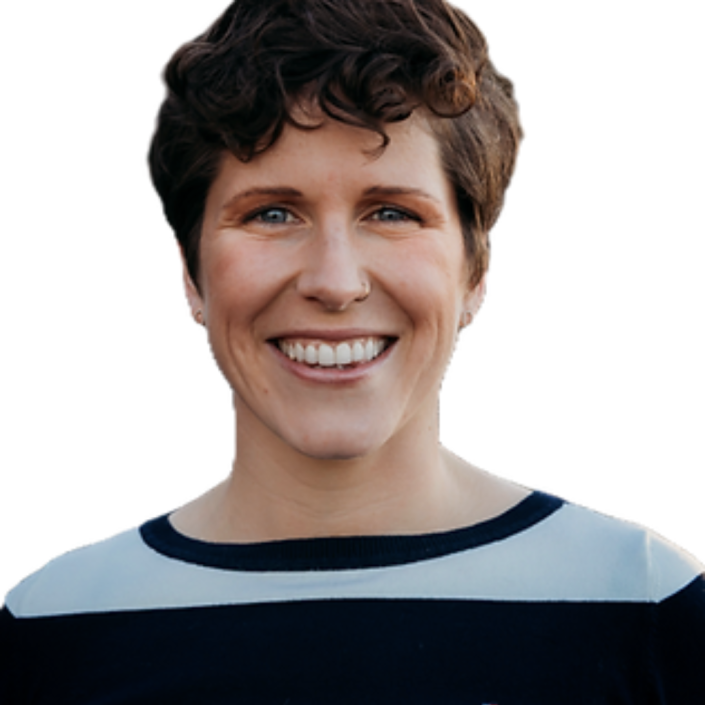
Session Description:
Collective knowledge of persistent pain management is evolving to a broader understanding of the biopsychosocial influences yet pregnancy related pelvic girdle pain often remains treated from a biomechanical bias. Well-intentioned practitioners inadvertently promote fear, harm and struggle with resolution using unsupported theories and explanations about this condition. This presentation unpacks the speakers' published work in the 2022 British Journal of Sports Medicine to help dispel the myths and promote facts so clinicians can easily disseminate knowledge and improve treatment outcomes. Using easy to digest imagery we can shift the way knowledge is translated and applied.
Learning Objectives:
- Understand the evolution of contemporary pain science applied in a pregnancy population
- Develop a context to question our beliefs and look for more complete information
- Deepen an understanding of how words can be impactful in a biopsychosocial framework for pain management
Relevance and Target Population:
Intended for physiotherapists who interface with people who have had children or will have children and need to consider how to choose language and treatment that is congruent with contemporary care strategies. These concepts and principles can be applied beyond pregnancy and into contemporary management of all pain.
Editorial Reference:
Pulsifer J, Britnell S, Sim A, Adaszynski J, Dufour S. Reframing beliefs and instiling facts for contemporary management of pregnancy-related pelvic girdle pain. Br J Sports Med. 2022 Aug 10:bjsports-2022-105724. doi: 10.1136/bjsports-2022-105724. Epub ahead of print. PMID: 35948414.
Time:
TBC
Bio:

Jessica Adaszynski graduated from UBC in 2011 and is a practicing physiotherapist in the Tri-Cities. Jessica serves as the Fraser Valley Regional Director on the PABC Board.
Experiencing excellent partnered and evidenced-based care from her physiotherapist, midwives and obstetrics team, it lit a desire for Jessica to practice in this amazing and underserved area of medical care. Jessica currently works in public practice at the new Pelvic Pain Clinic at Jim Pattison in Surrey and works in private practice with Full Circle Physiotherapy Collective where she works within Tri-City Midwives and at Core Kinesis Physiotherapy. Jessica is a TA for Pelvic Health Solutions and the UBC MPT Program.
Outside of work, you can find Jessica outdoors with her family running, hiking and exploring this beautiful province she gets to call home.

Jodie Pulsifer graduated from UBC in 2012 and is a practicing physiotherapist in Vancouver. Jodie serves as the Chair of the Scope of Practice Committee for PABC, she is a member of the Professional Development Advisory Committee for CPTBC and a member of the steering committee for Pain BC’s Adaptive Mentorship Network.
Jodie enjoys the intersection of social justice and cultural influences on the human body and care that is not readily accessed in our current medical model. Jodie is a passionate educator, enjoys a good laugh and believes it is the role of a physiotherapist to promote and support lifestyle management so people can move beyond care. Jodie works with Full Circle Physiotherapy Collective and can be found in clinic at Local Health Integrative Clinic and Pomegranate Community Midwives. Jodie instructs with Pelvic Health Solutions, Reframe Rehab and TAs in the UBC MPT Program.
Outside of work you can find Jodie raising her two tiny humans to live in a world with less impact. You can find her running everywhere or getting around town on her bike.
Jessica and Jodie went to UBC together and 10 years later, apart from a few more kids in tow, not much has changed!
Caitlin Williams: Physiotherapy for Breathing Pattern Disorders
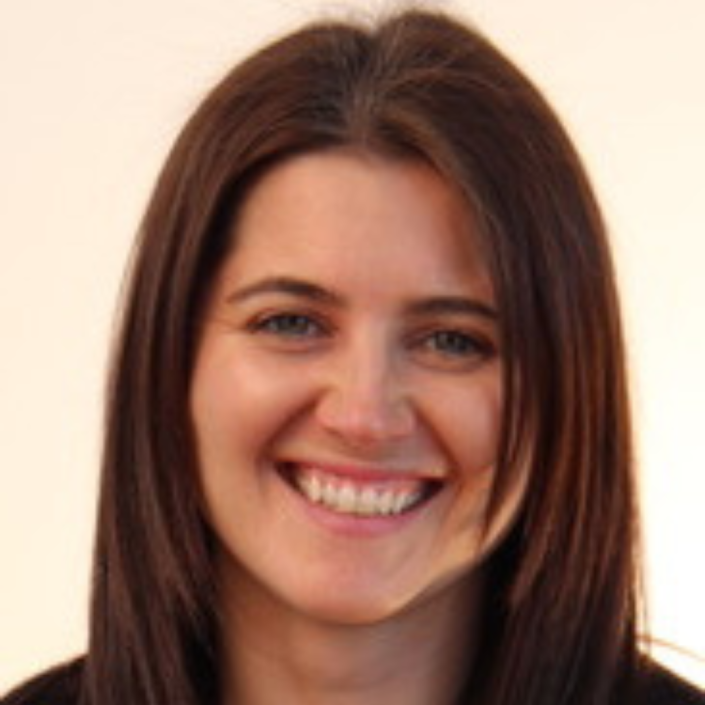
Session Description:
Breathing pattern disorders (BPDs) can occur in both adults and children and are commonly found in clients with other disease processes including asthma, COPD, and long COVID. The impact on clients can be significant, affecting both health and quality of life. Physiotherapists are well placed to provide assessment and treatment including breathing retraining, inspiratory muscle training, and integration of these techniques with activity and function.
This session will contribute to the awareness and knowledge of physiotherapists around breathing pattern disorders and the role of physiotherapy in its management.
Time:
TBC
Bio:

Caitlin Williams has been practicing physiotherapy, with a focus in cardiorespiratory care, for over 10 years. After graduating with degrees in both Science and Physical and Health Education from Queen’s University in Ontario, she completed her Master of Physiotherapy at Curtin University in Perth, Western Australia.
After completing foundational rotations in Australia, Caitlin moved to London, UK, and worked initially as a specialist respiratory physiotherapist at St. Bartholomew’s Hospital, and later as the Deputy Clinical Specialist for Critical Care at St. Thomas’ Hospital. She relocated back to Canada in 2019 after accepting a position with Vancouver Coastal Health (VCH).
Her most recent post within VCH was as the Physiotherapy Clinical Resource Therapist for Cardiorespiratory diseases, supporting education and practice within this field. Caitlin currently works at UBC as a lecturer for the Master of Physical Therapy Program and continues to work clinically both within critical care at VCH as well as treating clients with breathing pattern disorders at her practice, Balanced Breath Physiotherapy. Caitlin is currently the Chair of the Cardiorespiratory division of the Canadian Physiotherapy Association.
Follow @balancedbreathphysio on social media to learn more.
Shannon Chou & Roxanne Jeavons: Rehabilitation of a Post-COVID-19 Patient During 77 Days of Venovenous Extracorporeal Membrane Oxygenation
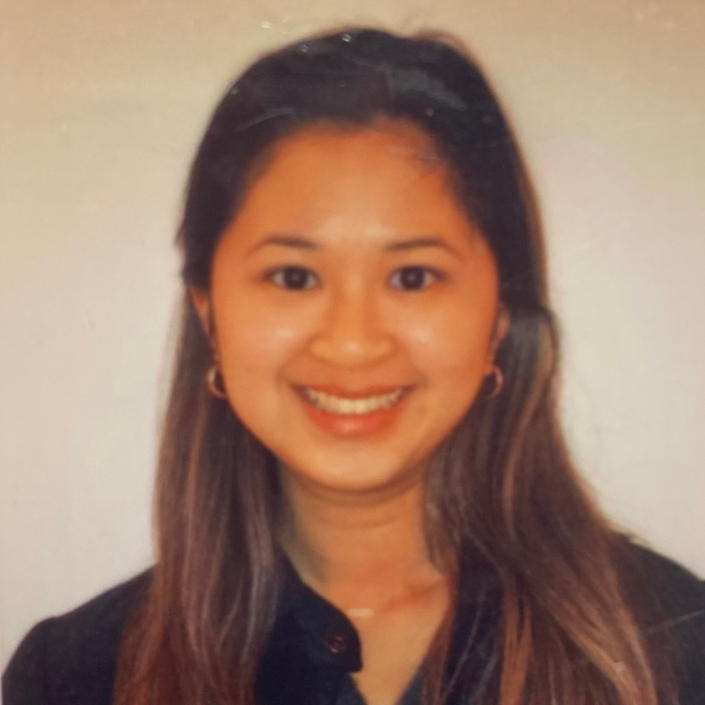
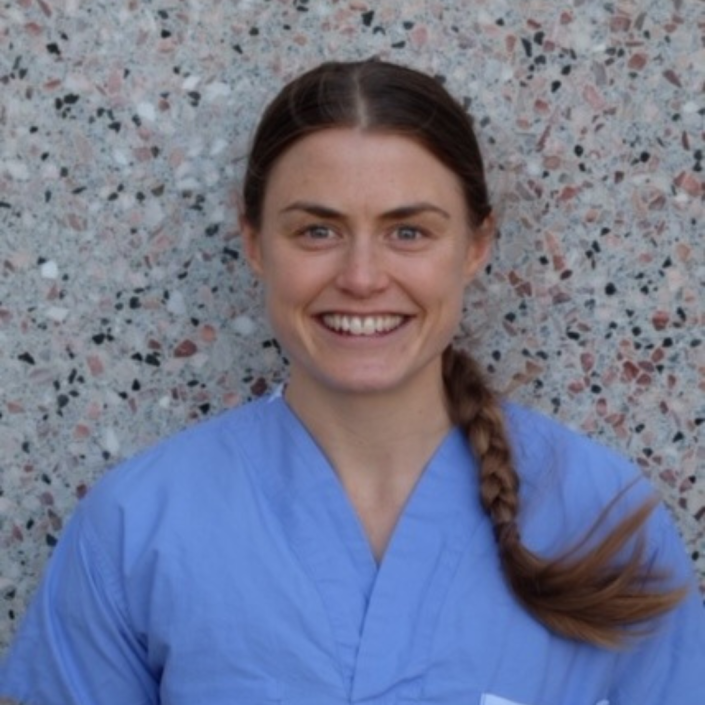
Session Description:
The benefits of early mobility in the intensive-care unit (ICU) are well documented and more recently, the literature on early rehabilitation of those requiring venovenous extracorporeal membrane oxygenation (VV-ECMO) suggests it is both safe and improves long-term functional outcomes.
The arrival of the novel coronavirus disease 2019 (COVID-19) pandemic resulted in more critically ill patients requiring VV- ECMO support. Currently, there is a lack of literature surrounding the rehabilitation process for these patients both during the infectious phase and once they enter post-disease recovery.
This case report describes the rehabilitation program of a 59-year-old male with severe acute respiratory distress syndrome as a result of COVID-19, who required 77 days of VV- ECMO support in ICU. The patient was initially cannulated on VV-ECMO with the goal of bridging to lung transplant, however, following significant lung recovery he met medical criteria for decannulation and the decision was made to bridge to recovery.
Despite this improvement, the decision was made to keep the patient on VV-ECMO to facilitate rehabilitation in order to ensure adequate oxygen delivery and CO2 clearance. Daily rehabilitation was provided, initially with bed-based exercises, progressing to mobilization out of bed, and eventually to ambulation away from the bedside.
Exercise capacity was challenged and assessed with trials off sweep/fresh gas flow during exercise and at rest throughout the patient's ICU stay. The patient was eventually decannulated from VV-ECMO on day 77, transferred to the ward 3 days later, and discharged to an inpatient rehab facility on day 6 post-decannulation. This case report supports previous literature advocating for safe mobility whilst on VV-ECMO. The report also highlights a need for future research on progressive exercise programs in post-COVID patients and feasibility of providing prolonged, high-intensity rehab to those supported and optimized on VV- ECMO.
Time:
TBC
Bio:

Shannon Chou is a registered physiotherapist practicing in Vancouver. Her experiences include critical care, pulmonary rehab, and outpatient orthopedics. She currently works in acute spine surgery and is passionate about cardiorespiratory physiotherapy and pulmonary rehab post-lung transplants.

Roxanne (Roxy) Jeavons is a registered physiotherapist working in Vancouver Acute. She has experience working across various acute areas but primarily based in intensive care and Burns Trauma High Acquity. She has a special interest in mentoring and educating in cardiorespiratory physiotherapy.
Anniken Chadwick & Andrea Mendoza: Specialty clinics Behind the scenes
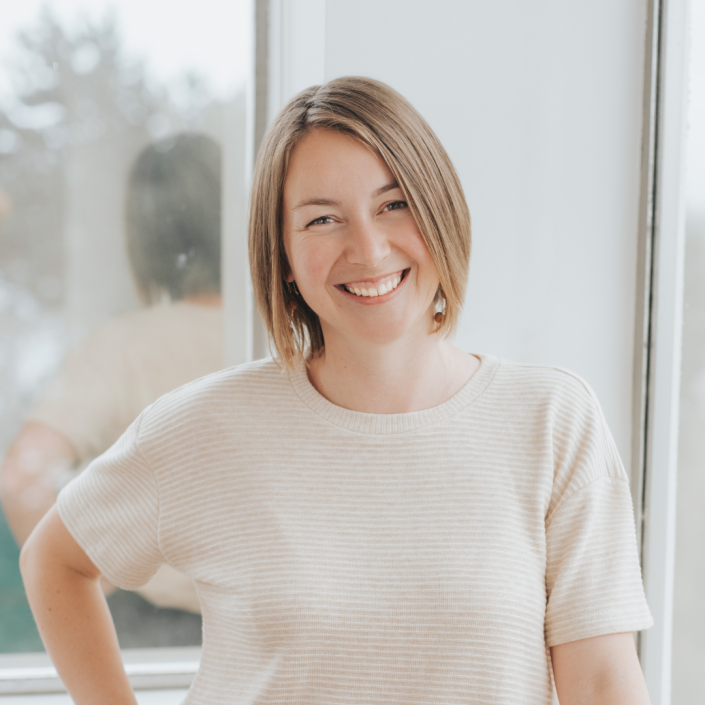
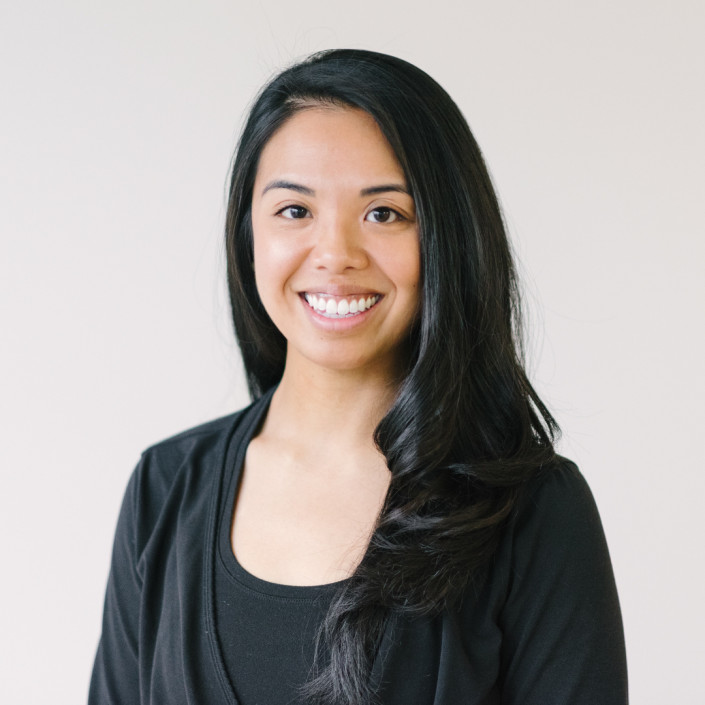
Session Description:
‘Specialty’ clinics are becoming more and more common, with many new grads interested in finding a niche practice earlier than before.
In this presentation, we’ll dissect the impact of specialty clinics for all stakeholders; clients, physios, and clinic owners.
How do specialty clinics impact quality of care for clients? How does specializing early impact physiotherapists’ skills and career prospects? Is there a ‘right time’ to specialize? What are the unique benefits and struggles for clinic owners? How can specialty and general orthopedic clinics work together?
Although pelvic health (The Cheerful Pelvis) and scoliosis (The ScoliClinic) are seemingly different clinical areas, we’ve noticed trends in the operations and service delivery across niche practices.
Whether you’re a clinician interested in finding your niche, a general orthopedic clinic owner looking to support a staff member in specializing, or someone keen to open a practice fully dedicated to your focus area, this session will offer rich discussion with aspects and insights to consider, as our physiotherapy profession continues to evolve.
Time:
TBC
Bio:

Anniken Chadwick is a pelvic health physiotherapist and owner of The Cheerful Pelvis, a pelvic health clinic in Vancouver.
Anniken is particularly interested in the culture of private practice physio, and critically reflecting on the norms of service delivery. The questions she loves to ask are: Which parts of our practice are we consciously choosing? Which parts are unquestioned and rote? What is a baseline acceptable level of care in pelvic health? How can we make private practice more inclusive and equitable? How can we better support newer/younger physios on their learning journeys?
At The Cheerful Pelvis, Anniken works to tackle these questions by trialing innovations with her team and continually strategizing new ways of leading, working, and being together in healthcare.
In addition to being a physiotherapist, Anniken has a Masters in Education and is trained in somatic psychotherapy. She uses her education and therapy training to uplevel the relational aspect of physiotherapy care, which has led to a joyful clinical practice focused on clients experiencing complex pain and trauma. Anniken’s passionate about sharing these learnings through mentorship, to help other physios achieve the same confidence with this challenging demographic.

Andrea Mendoza launched The ScoliClinic in 2016 after providing Physiotherapy treatment to many teens diagnosed with scoliosis and observing their families’ anxiety and frustration with a lack of services. The clinic was launched in an attempt to address families’ scoliosis-related physical & emotional needs. Fast forward to the present day: with 3 locations in Canada and a team of 30, The ScoliClinic’s reach has broadened beyond early expectations as the team continues to work to fill gaps in the medical system by providing high-quality scoliosis-specific treatment to kids, teens, and adults.
Blending pragmatic problem-solving with an appreciation for the social and emotional complexities of human interaction, Andrea is very intentional with the growth of The ScoliClinic, encouraging professional and personal development of staff to create increasingly diverse and inclusive spaces and practices.
Andrea combines her advanced scoliosis training with her enthusiasm for philosophy, business strategy, and healthcare leadership to continually evolve The ScoliClinic’s service to the community, aiming to change the landscape of conservative scoliosis management in British Columbia and beyond.